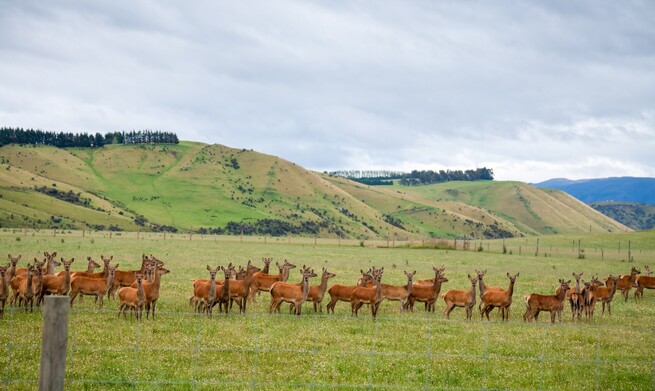Leptospirosis is the disease caused by a bacteria, Leptospira interrogans to be precise, which has different strains with different effects on deer.
The most widespread strain is Hardjo-bovis, but also Pomona and occasionally Copenhageni has been reported in farmed deer in New Zealand. Leptospirosis is known in different species, including humans, where it can lead to flu-like symptoms, which can progress to serious sickness if left untreated.
The bacteria is, depending on the strain, carried by cattle, rodents, pigs and possibly dogs. Those carrier animals spread the bacteria in their urine without becoming sick themselves. In this way they can infect other animals, as well contaminate water and feed. The effects of L. Hardjo-bovis in deer are quite often sub-clinical, but have been reported to reduce growth rate in weaners and reduced reproductive outcome, especially in first calvers. Both with an affect on farm productivity. Outbreaks of L. Pomona have been seen in Southland before, this strain leads to more clinical disease, as redwater, jaundice, dullness, and sometimes a rapid death is seen. In general, young deer are more likely to be affected. As described above, lepto can affect not only your deer, the farm productivity, but also yourself. Which is reason enough to think about what you can do to limit the impact of this bug on your property.
When it comes to prevention there are different things you can do. First of all try to limit the exposure to the bacteria. Things to think about are the exposure to unvaccinated cattle, (wild) pigs, wild deer, rodents and possums. As this is easier said than done, and if you want to minimize the effect of the bacteria on your deer there are different vaccines available. These vaccines are ideally given at a young age. Weaners will need two vaccinations in their first year, and an annual booster thereafter. Some of the vaccines are combination products, which also protect against the effects of several clostridial diseases. Whether vaccination suits your farm, and if so, which vaccine to use are things we are more than happy to discuss. Just contact the clinic and we can give you tailor made advice.
- Tom Essink

